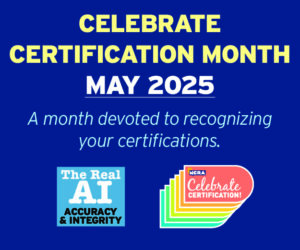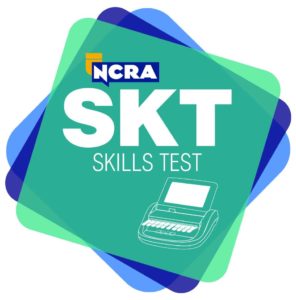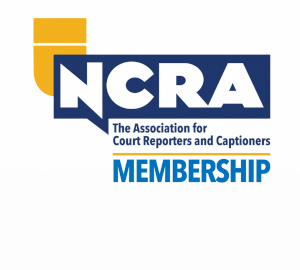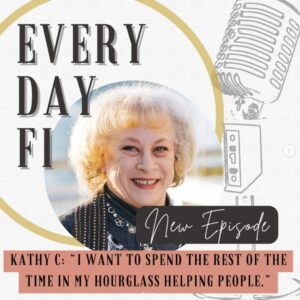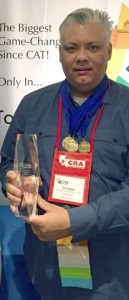 Doug Zweizig, RDR, CRR, a federal official court reporter for the United States District Court for the District of Maryland, in Baltimore, won the 2015 Realtime Contest in New York, N.Y. It’s his second time as NCRA Realtime Champion. The JCR Weekly caught up with him back on the job to find out a little more about his practice methods and what it’s like to be a part of the competitions.
Doug Zweizig, RDR, CRR, a federal official court reporter for the United States District Court for the District of Maryland, in Baltimore, won the 2015 Realtime Contest in New York, N.Y. It’s his second time as NCRA Realtime Champion. The JCR Weekly caught up with him back on the job to find out a little more about his practice methods and what it’s like to be a part of the competitions.
What appealed to you about competing in the speed or realtime contest?
2005 was the year of my very first NCRA convention. I figured I’d enter the Realtime Contest. I never thought I could compete with anyone. Lo and behold, I won third place. I had a suspicion that I did well and was very nervous about the awards luncheon, so I didn’t go and stayed in my room. Big mistake – one I vowed never to make again, despite my feelings on how well I did or didn’t do. Lisa Feissner, from my home state of Pennsylvania, tracked me down in my room and made me get downstairs right away! I still apologize to Teri Gaudet for not being there on time to this day.
How did you train for this competition?
To be honest, I didn’t have time, unless you count all my time in court. The Tuesday night practice session went unusually well for me. It’s normally awful. [Ed. Note: Traditionally, the Speed and Realtime Contestants have been invited to a practice session on the Tuesday before the convention. It gives both the contestants and the dictators a chance to get used to the venue and troubleshoot any problems before the Speed Contest begins on Wednesday.]
You compete in the Realtime Contest pretty frequently. Was there anything you did differently this time?
I wasn’t pleased with my performance last year, so basically I just had to be in the zone and calm down. I don’t like to chitchat too much before, which is difficult for me since I’m always running my mouth. That’s part of staying in the zone for me. After the dictation is over, all bets are off, and my mouth is running like always.
Were you surprised that you won, or did you have a good feeling about the contest as you were writing?
Literary – whether in speed or realtime – has always been my strongest, so I had a very good feeling about that. The Q&A, however, was extremely challenging, to say the least. Since it has to be written in mixed case, things that are not capped but should be are marked as errors. I used my cap stroke a total of 13 times in that file. They got tricky with this one, which is a good thing. They gave us a word list ahead of time but didn’t tell us which take it applied to. I think they all applied to the Q&A. “Great Northern Airlines,” I made up about five different briefs for that. But then they’d say “Great Northern,” which is where my cap stroke came in. Same with “Southeast Jet Airlines” suddenly becoming “Southeast.” It kept me on my toes, that’s for sure! I think it helped that I’ve taken several airplane crash trials, so I had some good briefs. And as for being surprised, I knew I did well, but you can never gauge how well someone else did.
How does this win compare to your Realtime Championship in 2006?
I remember the literary in 2006 being really good with a three-way tie. The Q&A that year was very challenging as well. I remember something about veterinary medicine and anaphylactic shock. I had quite a number of errors on that take. 2006 was surreal. I remember my teacher, Cathy Logan, was waiting for me off stage after she got wind that I might win. That was pretty awesome to see her right away. It was one of the best moments of my life.
Winning this year was particularly emotional for me. I lost my mother suddenly last year. The past year and a half has had more ups and downs than I’ve ever had in life, including moving states for a new job that I love. I wanted to be able to call my mom to tell her, of course, as anyone would, but I do feel she was with me in spirit. So if anyone wondered why I was so emotional, that’s why. This year was made very special as well because my friend and classmate Marla (Lahr) Vargas was there to see me win. She’s always been a big cheerleader.
You’ve competed in both the Speed and Realtime Contests at a national level. Do you practice for or think about them differently, or do you use the same techniques for both?
I never thought I could compete in the Speed Contest as realtime is my thing. I was shocked to place third overall in 2012 in both contests, but especially the speed. I never thought I’d be able to switch gears and had never tried until 2012. With realtime, I need to write as perfectly as I possibly can, including punctuation. With speed, it’s a matter of getting it down. Funny how I can still read my notes when transcribing, such as having a split stroke or a stack. It’s fun figuring it out and getting a big smile on my face when I do. I technically qualified in the speed Q&A in 2014, but I had some drops. I beat myself up about that for a long time, but I said to myself that I was going to nail it this year, and I did. My arms started to turn to rubber in the middle of it, but I held on. I had five errors, so I’m very happy with that.
